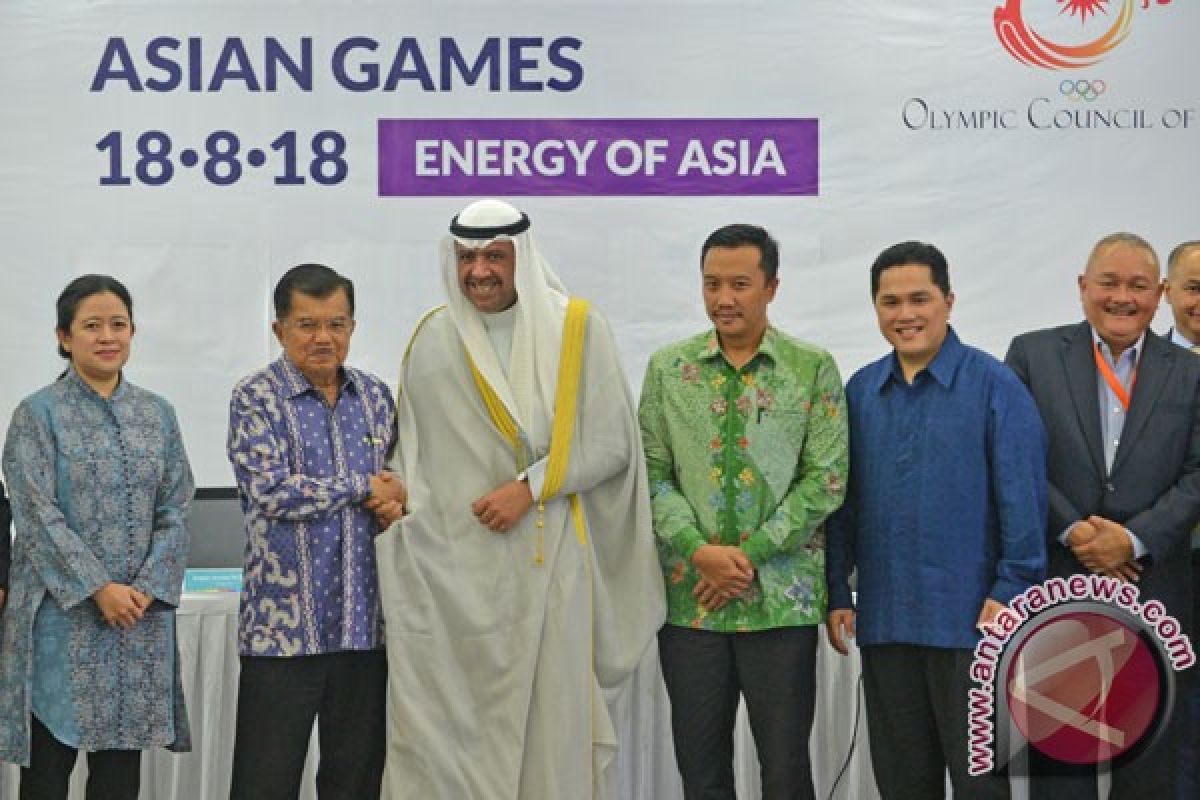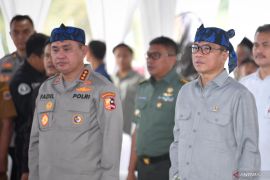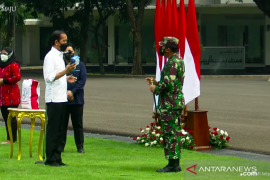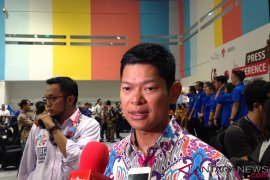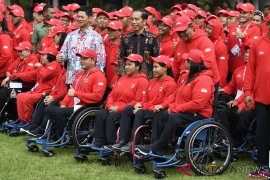A number of sanctions have already been firmly given by the World Anti-Doping Agency (WADA) to individuals, sport federations, and even the government of a country that has been involved in it.
Due to the doping scandal, almost 90 percent of Russian athletes were not allowed to participate in the Olympic Games in Rio de Janeiro 2016 and a number of international events. Some were allowed to participate but on behalf of individuals and not countries.
Following the Sochi case, the issue is now given special attention at multi-event sports championships, including the 18th Asian Games in Jakarta and Palembang next year.
Taking an anticipatory measure will now be part of the important tasks of Indonesia Asian Games Organizing Committee (Inasgoc), in view that the impact of a possible case would be credible.
Indonesia, as the host, must not only strive to prevent its athletes from being involved in doping but must also take correct measures to close any possible loopholes for foreign athletes to break the rules.
Sports minister`s secretary Gatot Dewa Broto has already expressed the country`s seriousness in making the Asian Games and Paragames in 2018 free of doping scandals.
"Coordination with WADA and Olympic Council of Asia`s Anti-Doping Commission will be stepped up to minimize the possibility of doping cases in Asian Games," he noted.
The sports ministry would continue to make athletes, coaches, and executives of sport branches aware of the issue, he added.
The move is taken in view of the cases in the National Games (PON) and the National Paralympic Games in West Java in 2016 when 22 athletes were found positive of using banned performance-enhancing drugs, due to the athletes` ignorance.
Indonesia has had anti-doping agency LADI, which is an official state institution, tasked with monitoring and anticipating against the use of drugs.
Now, nine months away, before the 18th Asian Games is implemented, LADI, in cooperation with INASGOC, are working together to assure zero doping in the event, which will be one of the successes in the organization of the four-yearly event.
To meet the Asian Games standard of handling doping, OCA`s Medical Committee, led by Dr Jegathesan Manikavasagam, has expressed readiness to help INASGOC meet its target of zero-doping scandal in the Asian Games event next year.
"We are committed to be strong and work well to achieve success. We will closely watch through doping issues and health monitoring to ensure success of the event," he told journalists in August.
Accredited Laboratory
Dr Manikavasagam remarked that doping prevention has become an inseparable part of official sporting events, including Asian Games.
Preventing doping in Asian Games will cost a lot, with regard to meeting OCA standards of laboratory and other technical matters, besides requiring a lot of samples.
For Asian Games 2018, medalists are obliged to undergo anti-doping test, meaning almost two thousand samples will be collected for examination apart from samples taken randomly or apart from the time of the games.
Indonesia has recommended a laboratory in Doha, Qatar, that has been accredited to carry out examination of samples from athletes playing in the 18th Asian Games.
"Doha has been chosen in consideration of price, customs and excise process, and flight frequencies available to ship the samples," INASGOC`s Doping Control and Health official, Lie Wiena Octoria, said.
According to Wiena, INASGOC initially considered laboratories in Japan, South Korea, Thailand, India, and Doha. It was then shortlisted, and a laboratory in Doha was finally chosen," she revealed.
India had been a choice for sample tests for Asian Games 2018, but the laboratory there could only conduct urine tests, excluding the blood test.
Although it has chosen a laboratory in Doha, Indonesia must report to OCA regarding its application for laboratory for the Asian Games.
Regarding samples to be tested, she explained that "we even do not know their exact number apart from those of medalists. Certainly, samples will be taken from all sport branches," she revealed.
Making Asian Games free of doping cases is a heavy task. In the previous Asian Games in Incheon, South Korea, in 2014, despite all its efforts to meet the OCA standards in preventing doping problem, cases still happened. At the time, six athletes were found positive using banned performance-enhancing drugs.
Through a serious of efforts made so far, Indonesia hoped no such case would happen in future and the country`s credibility would be maintained to assure success of the event.
(KR-BSR/A014)
Reporter: Teguh Handoko, Yosep Hariyadi
Editor: Bayu Prasetyo
Copyright © ANTARA 2017
